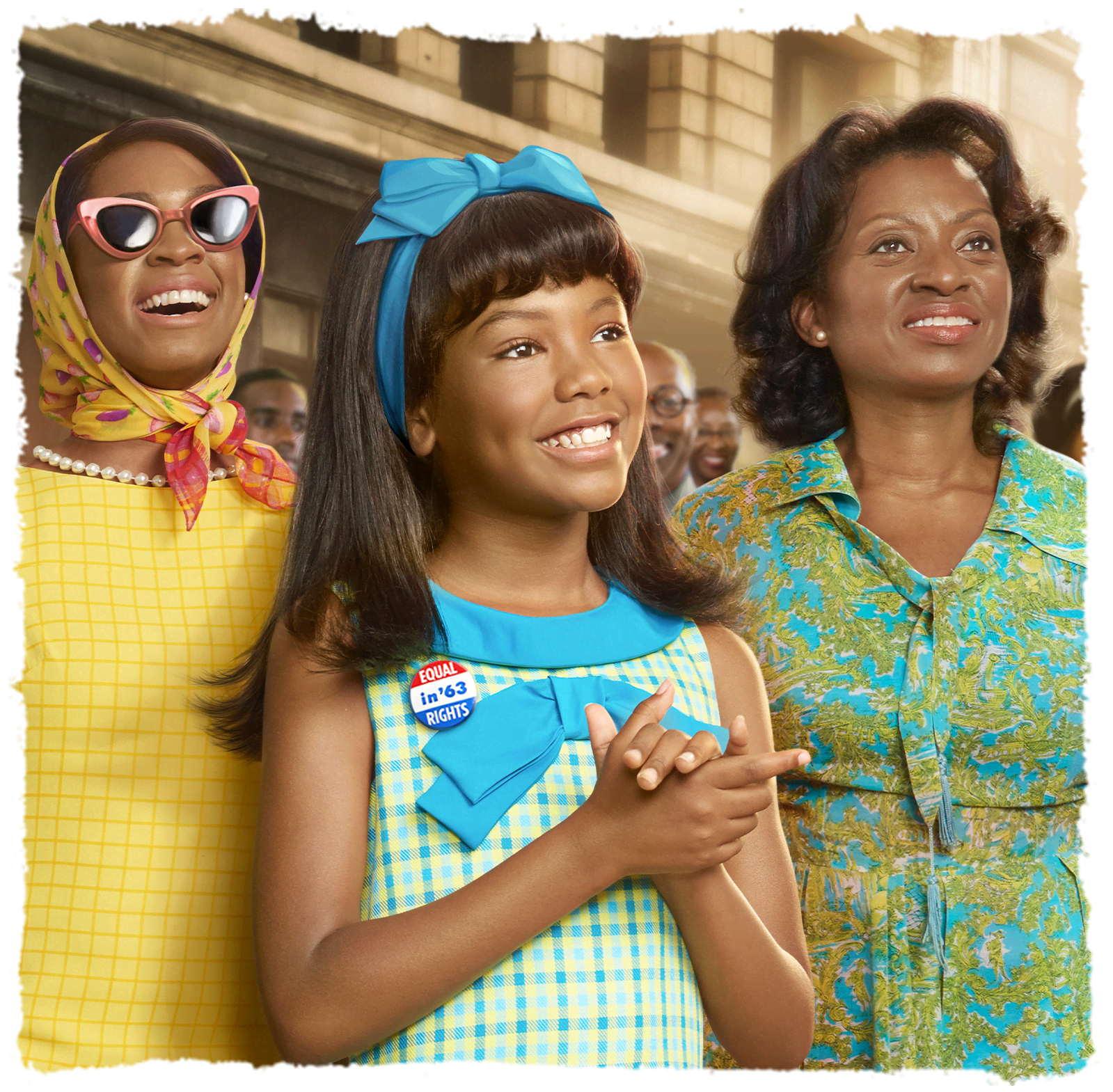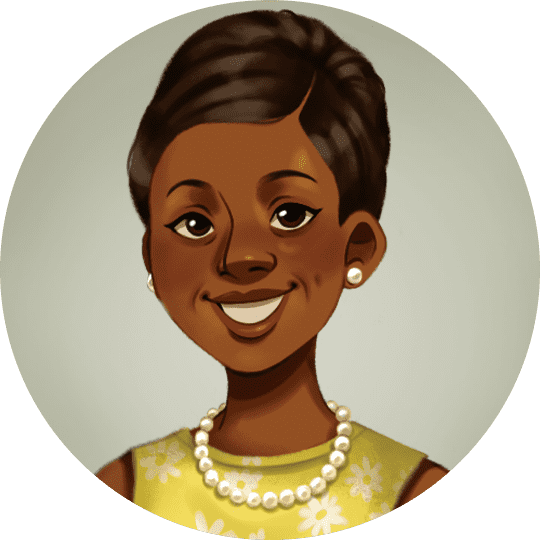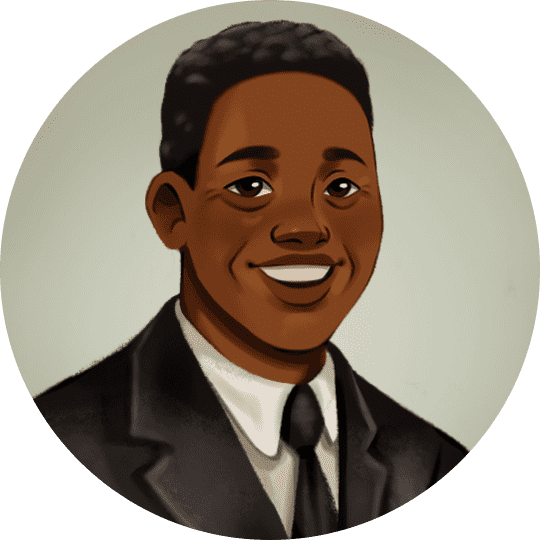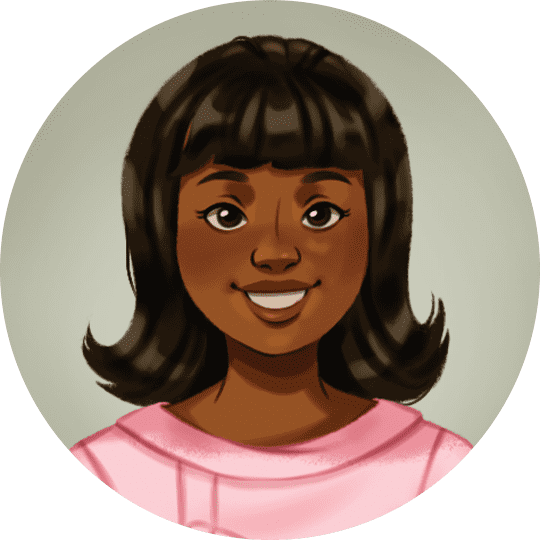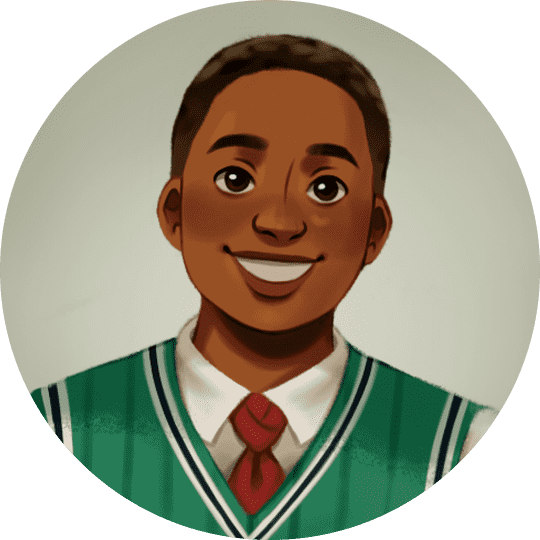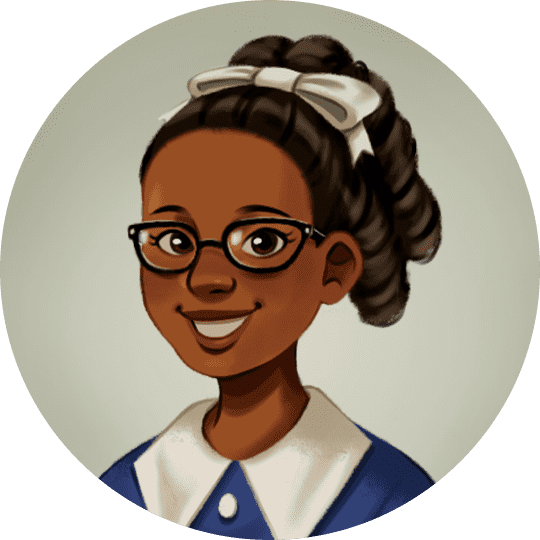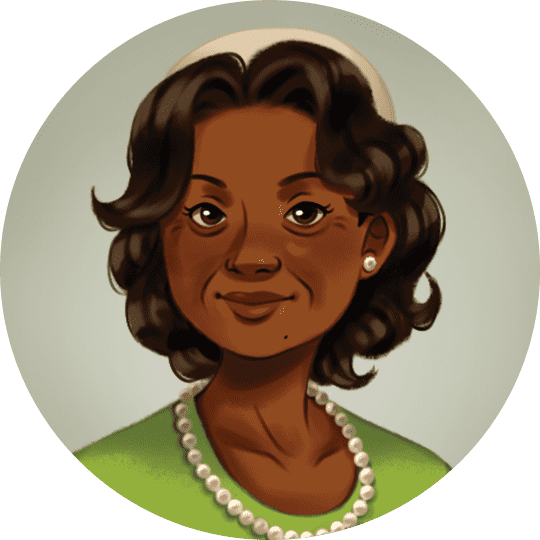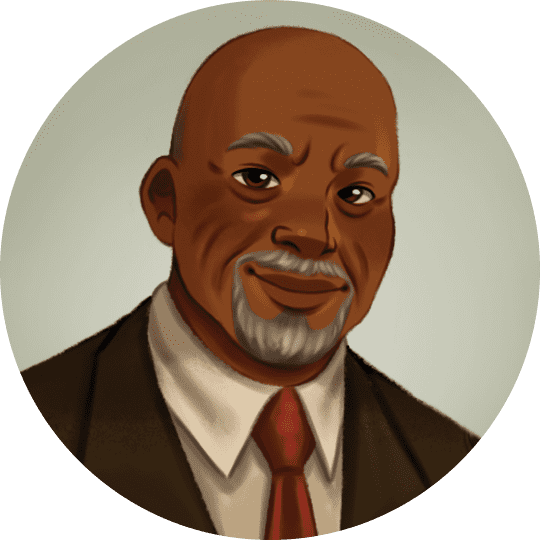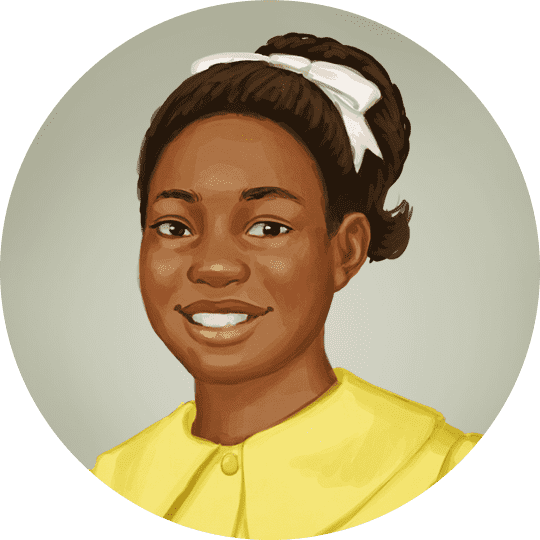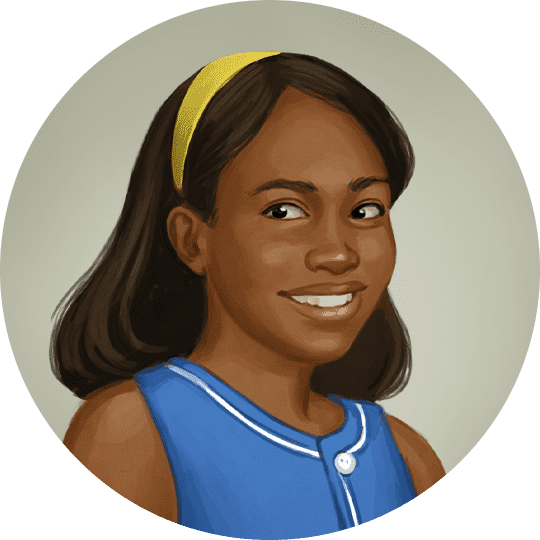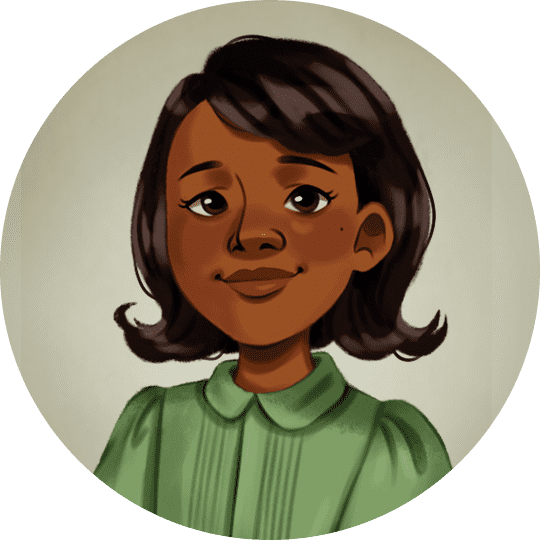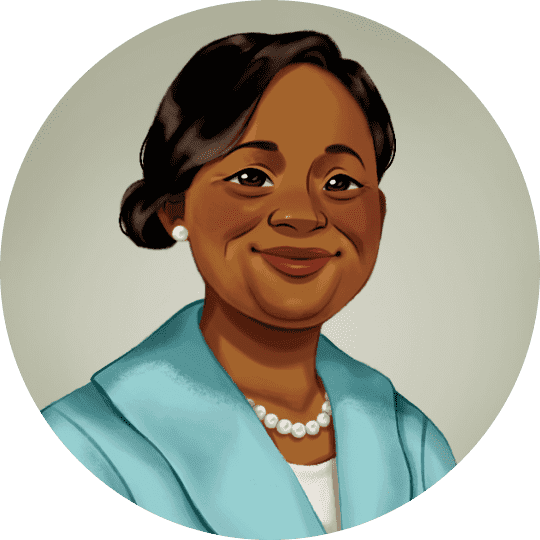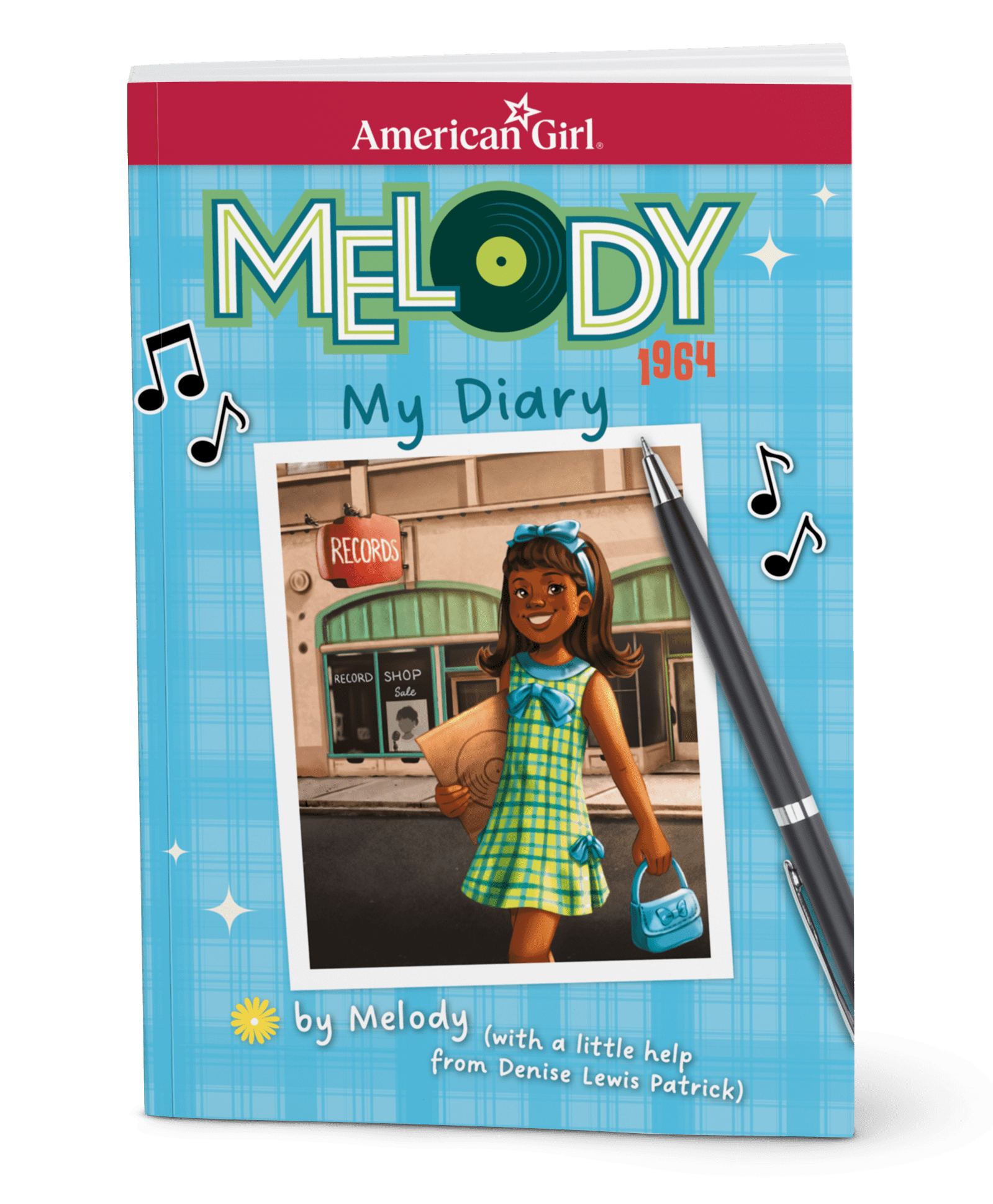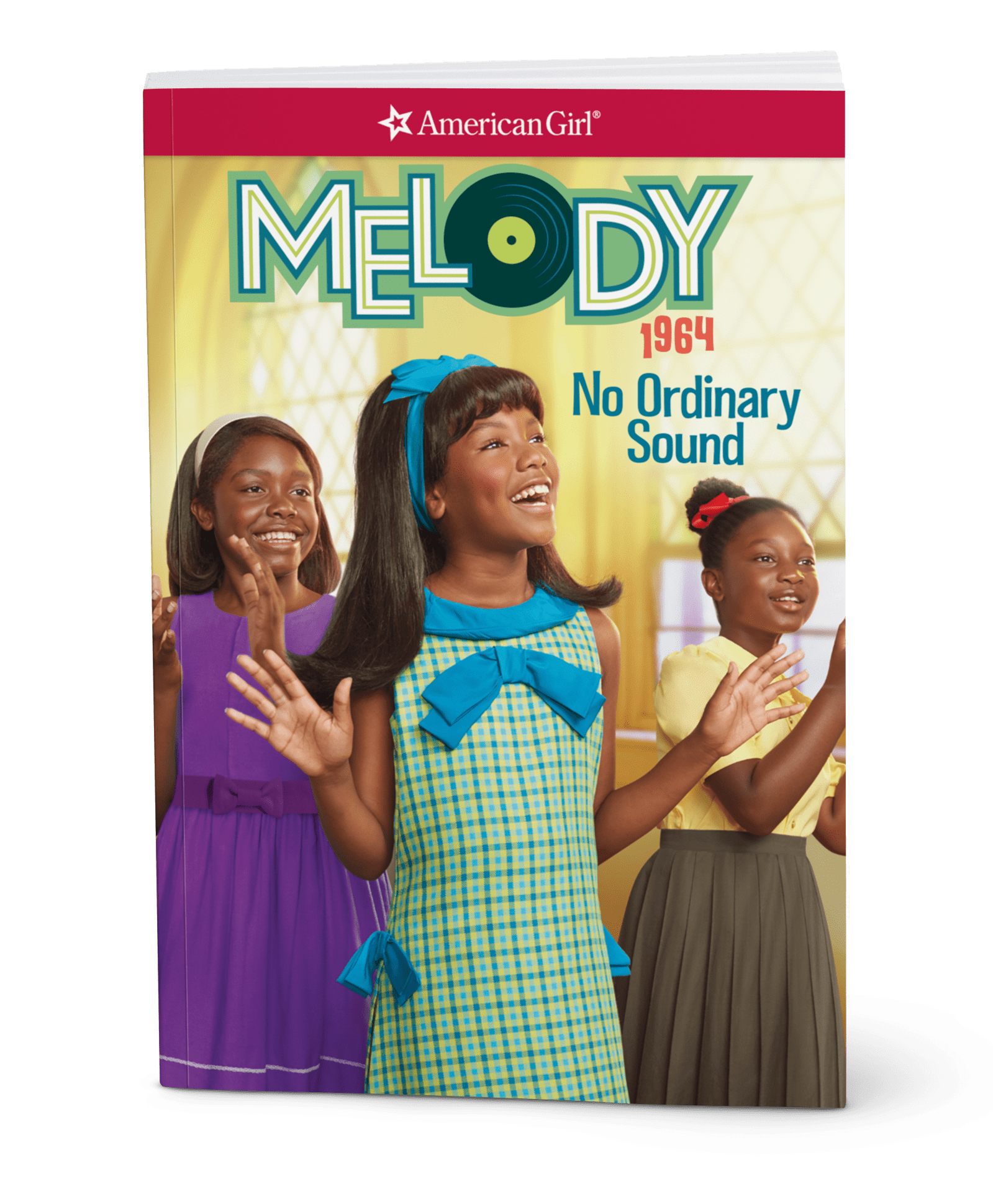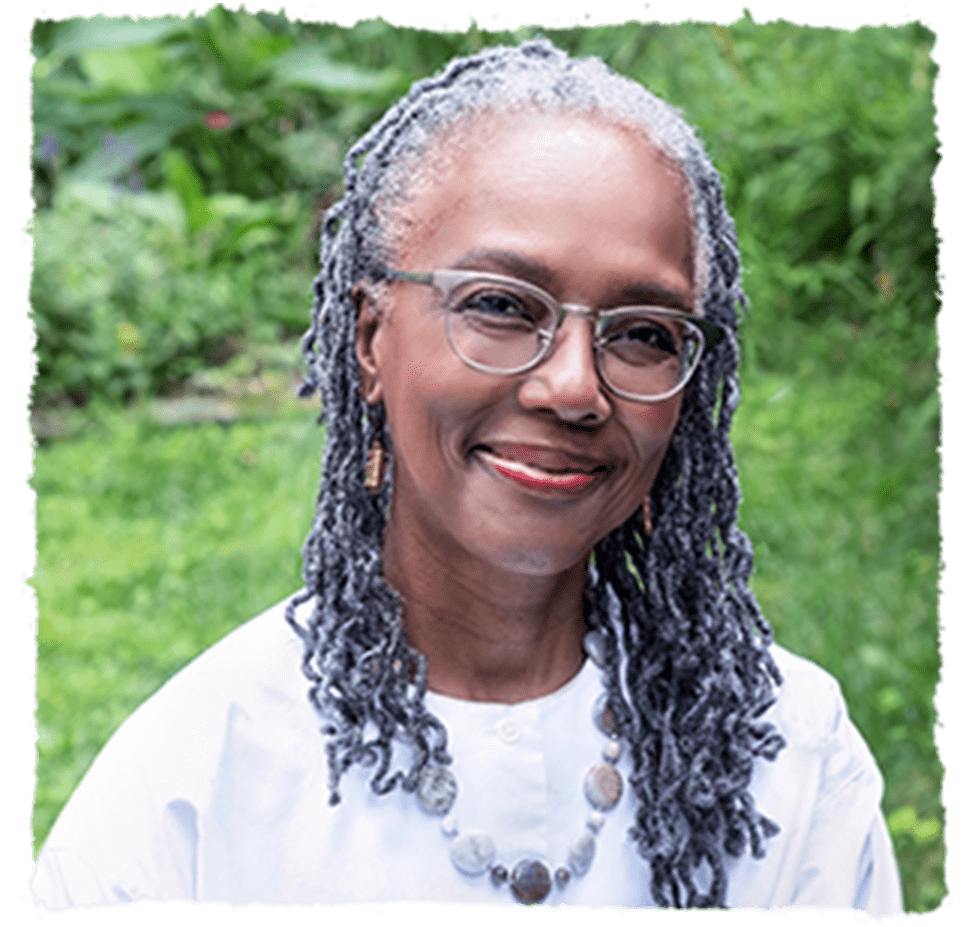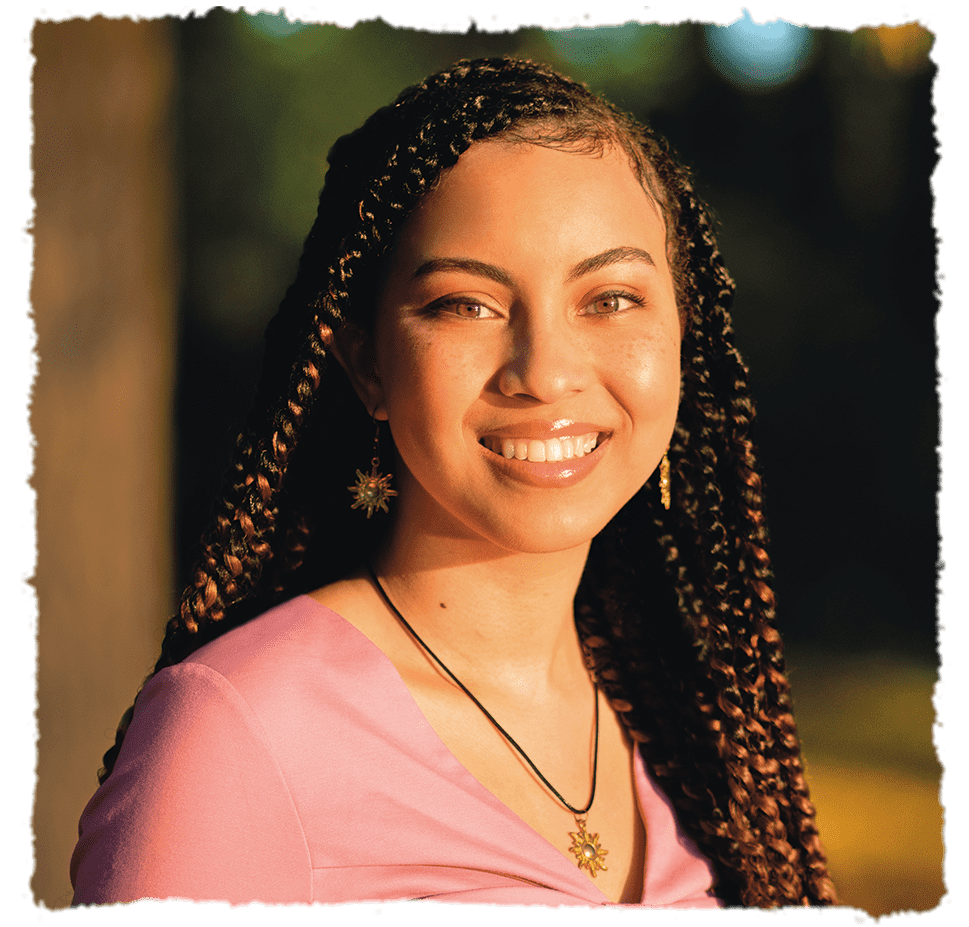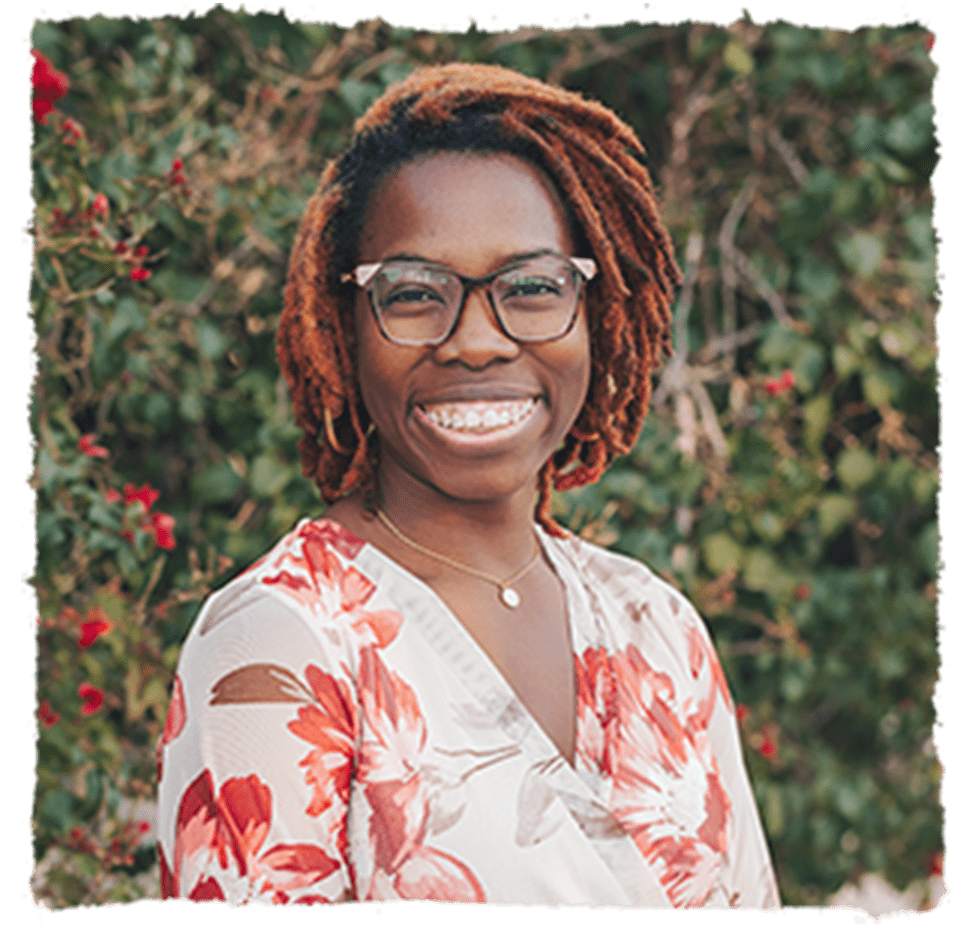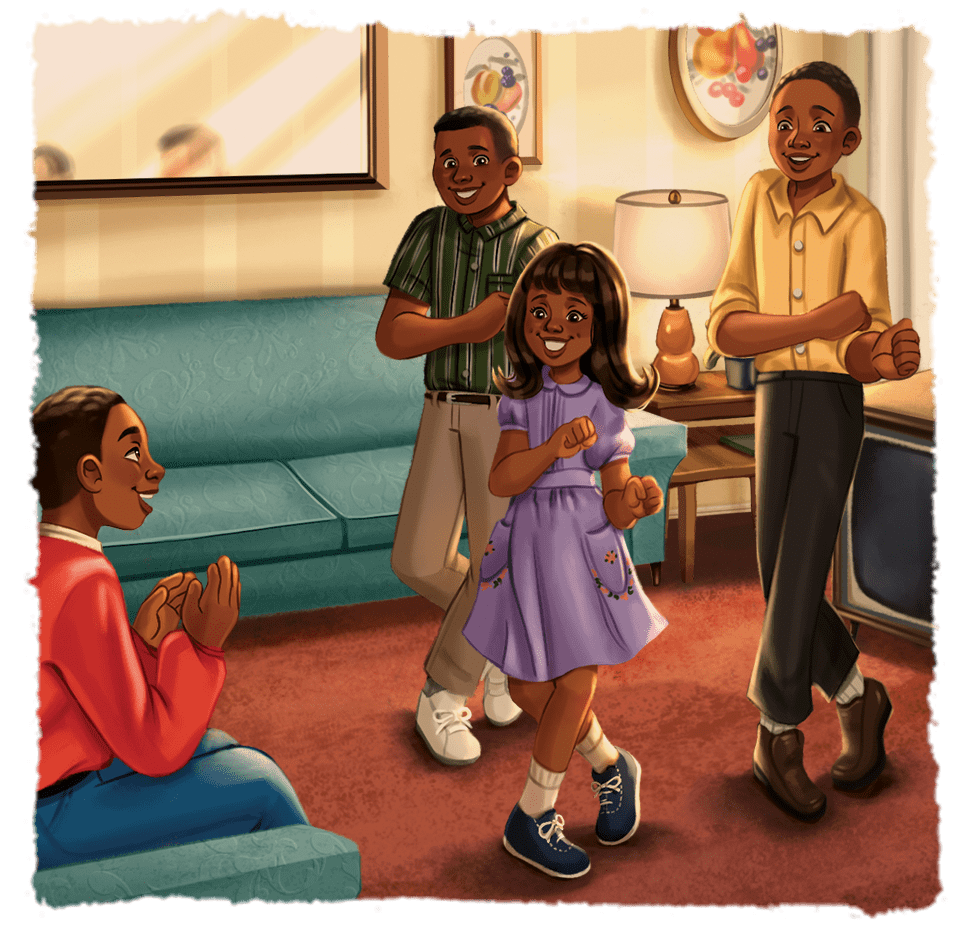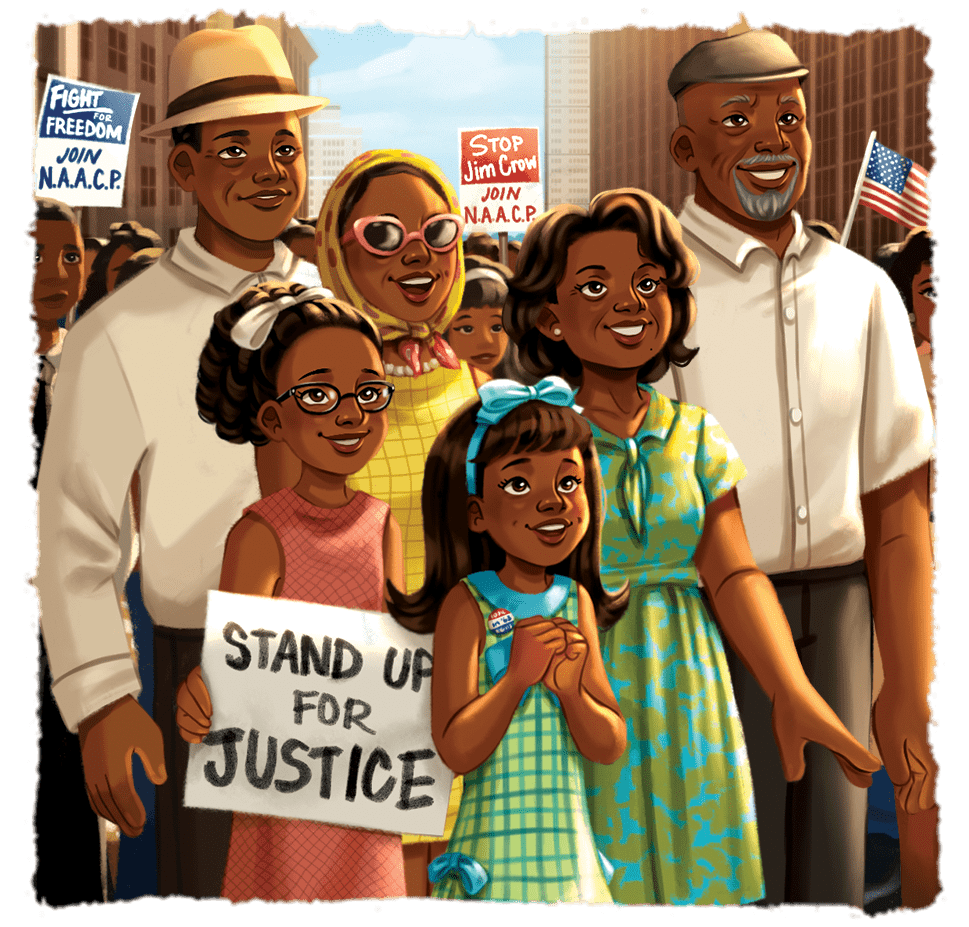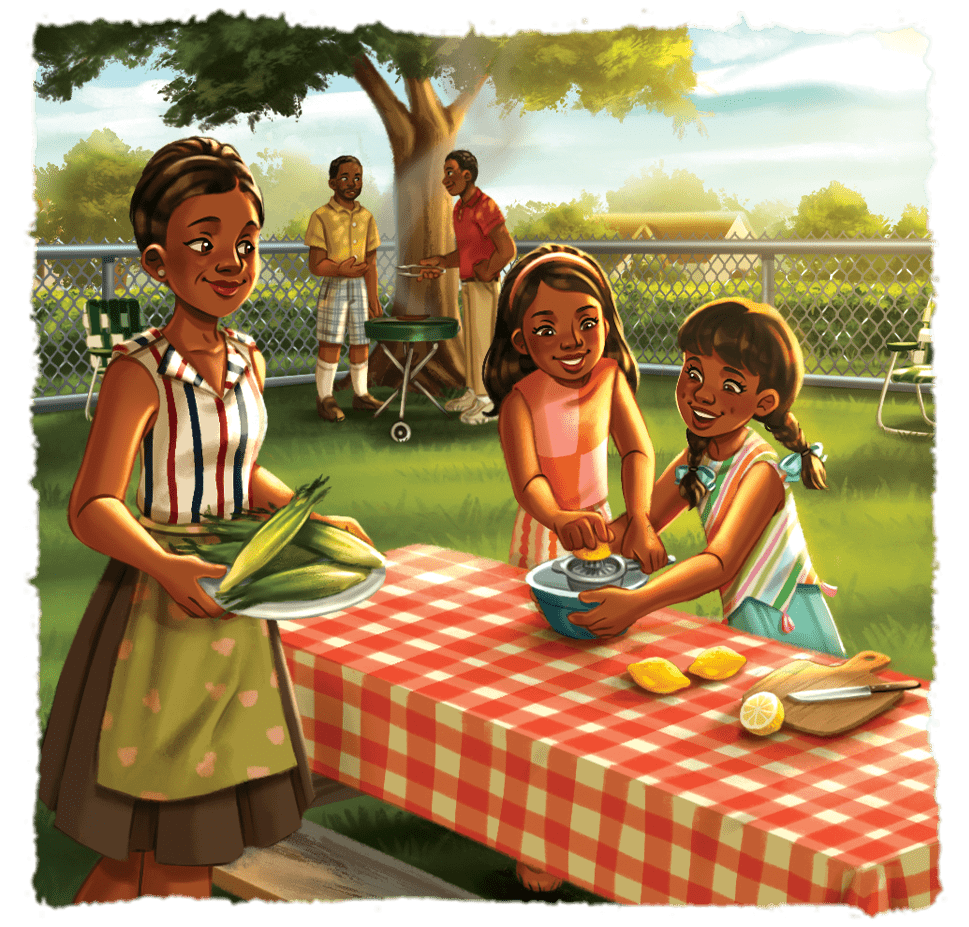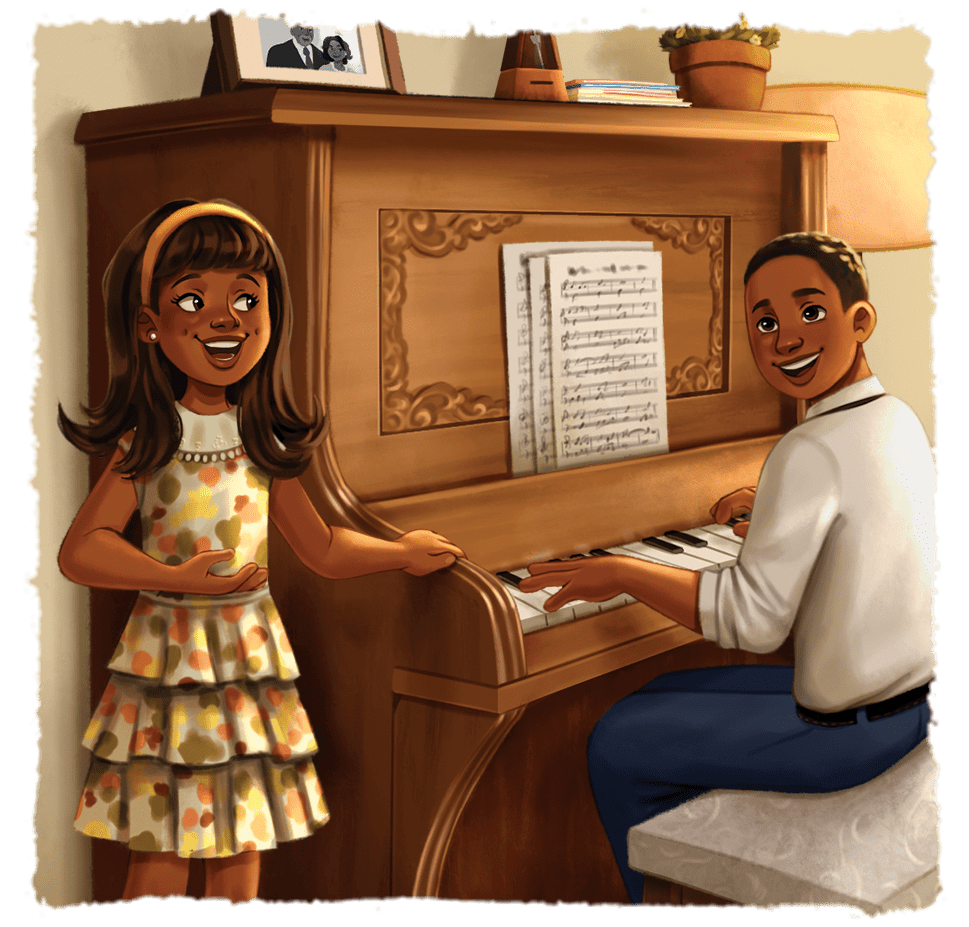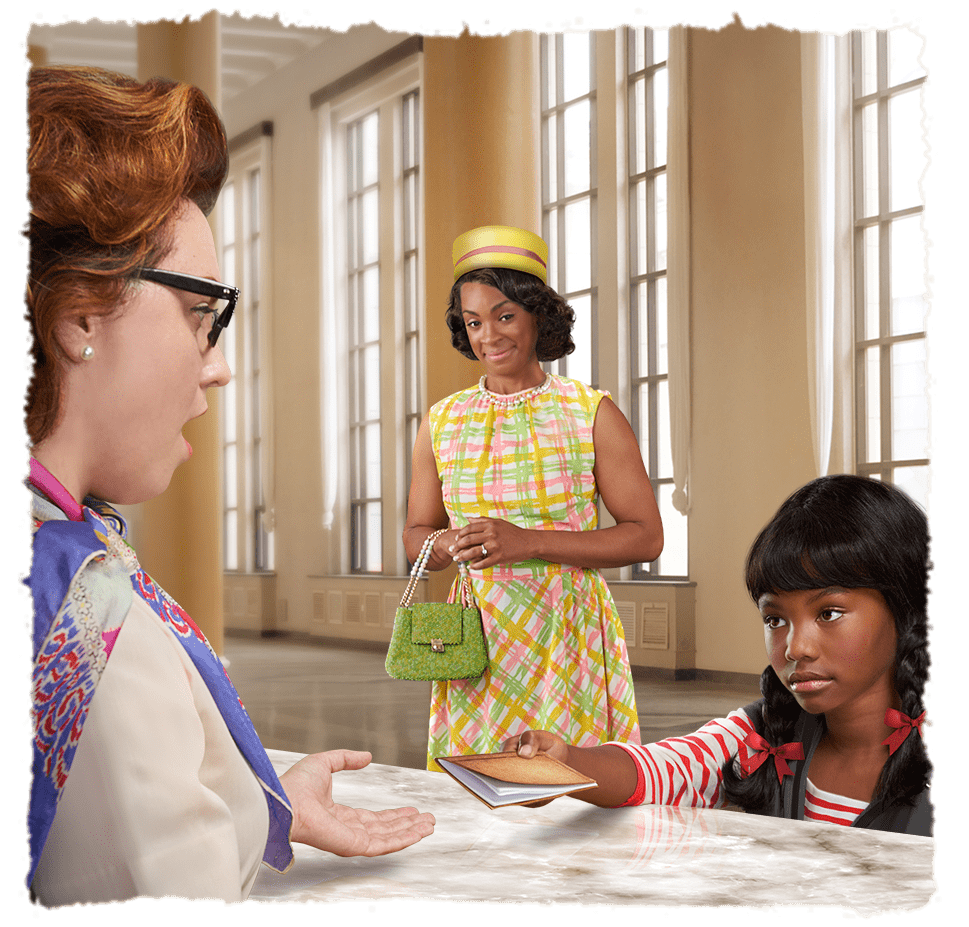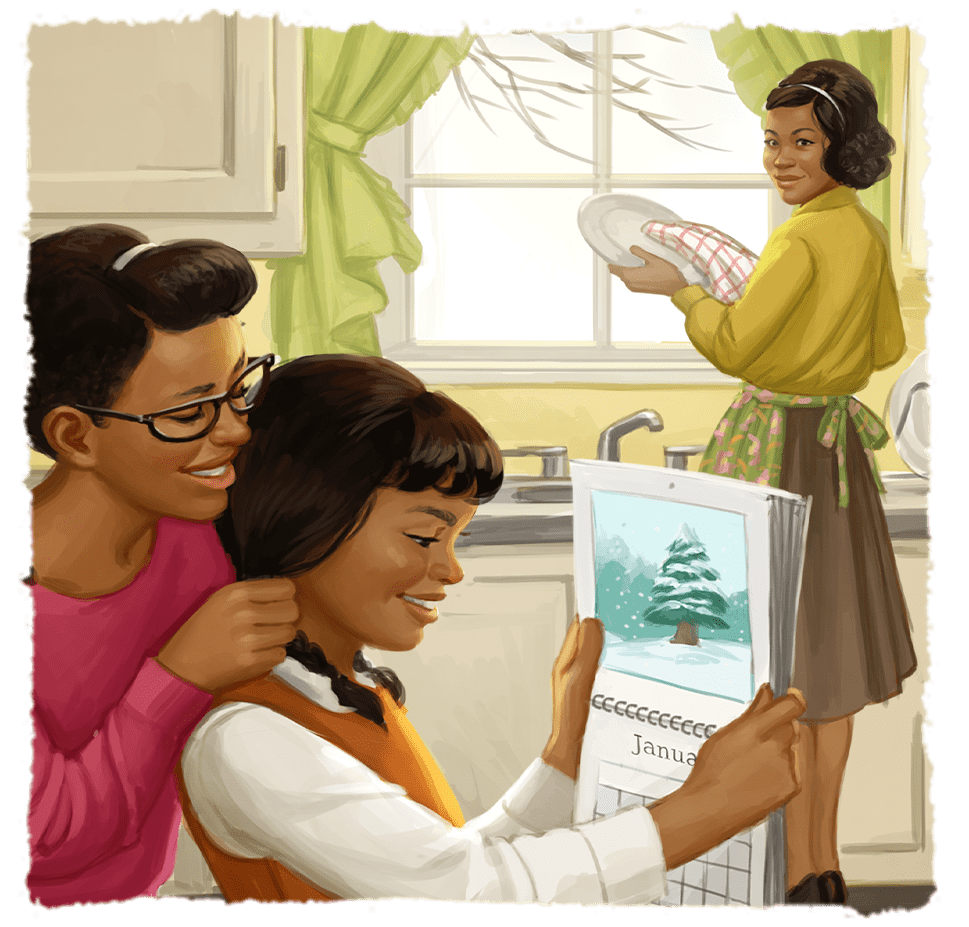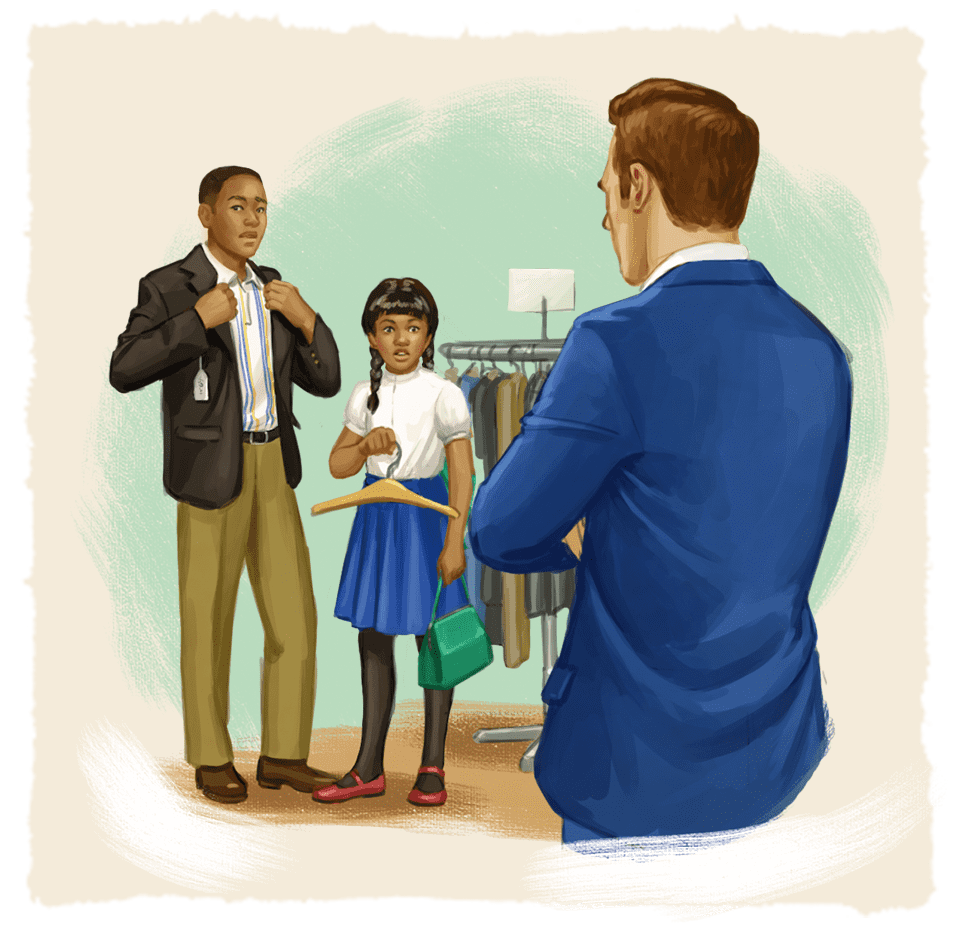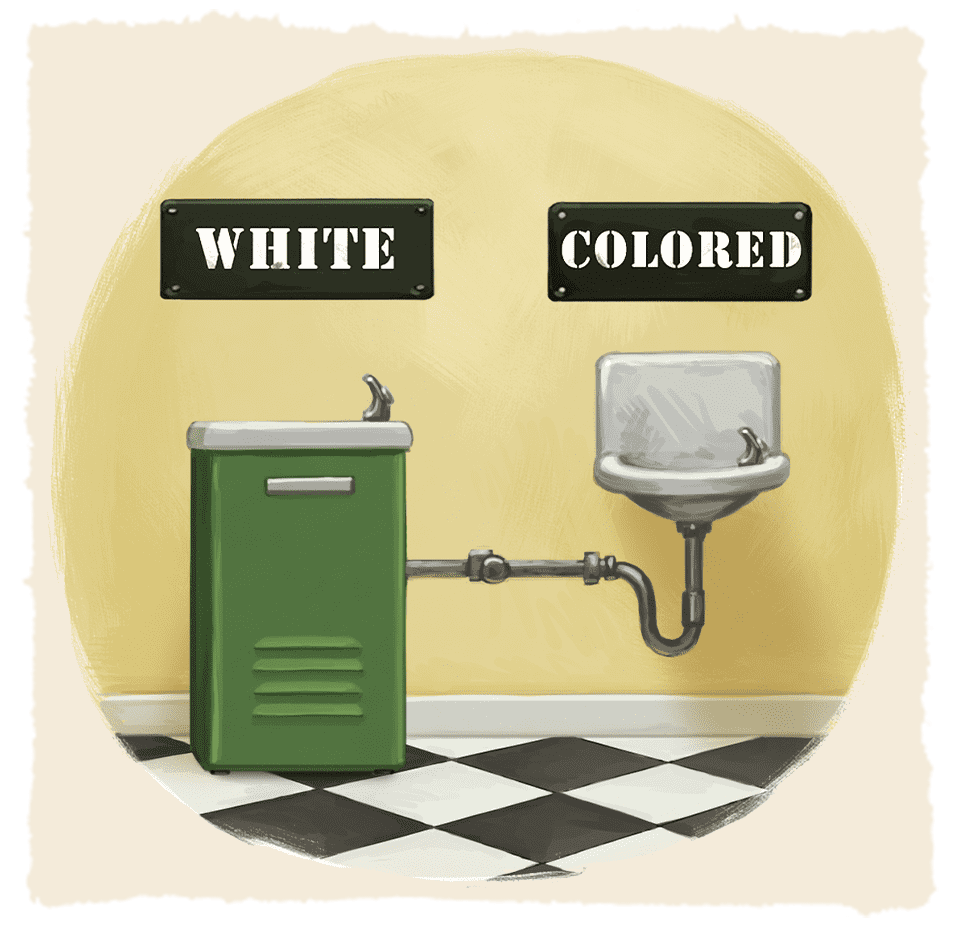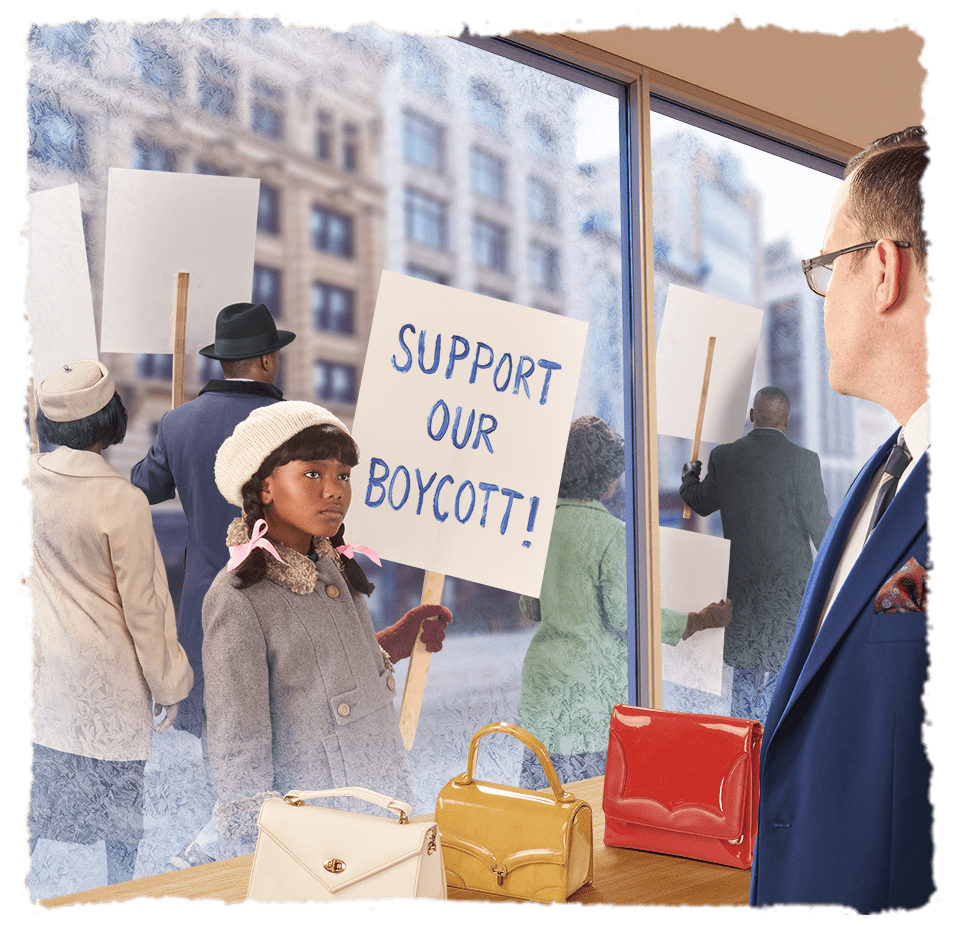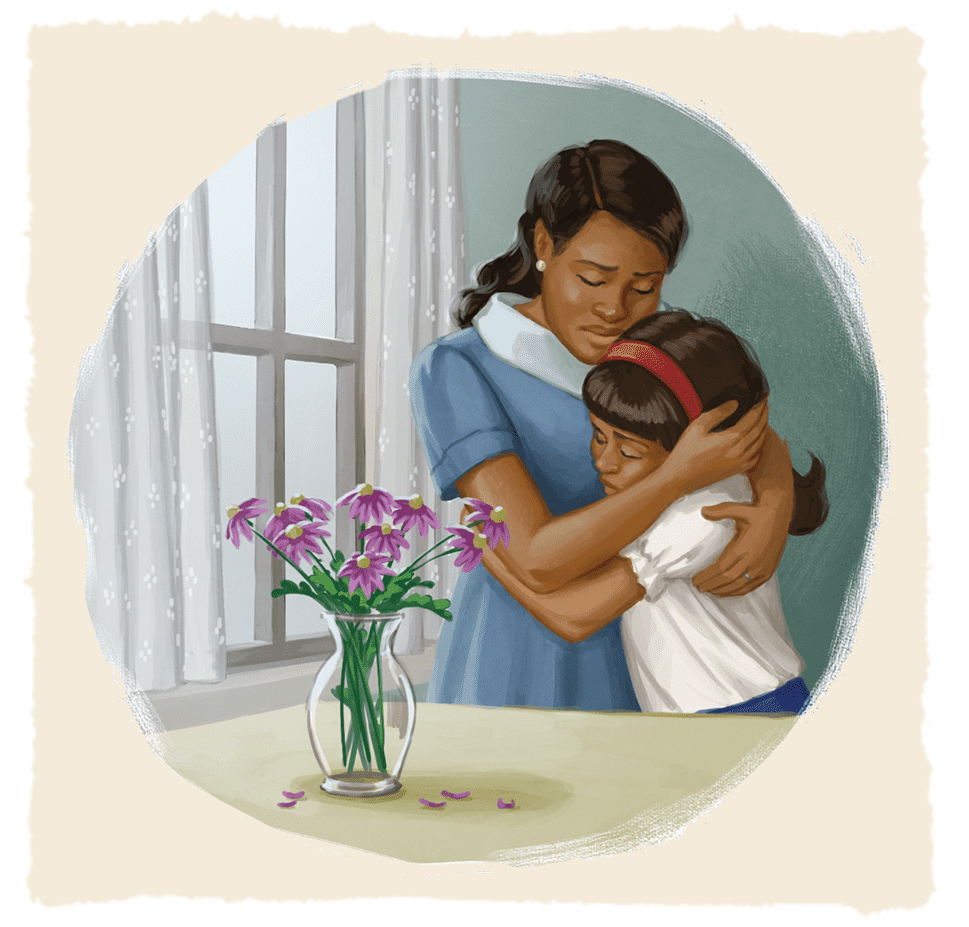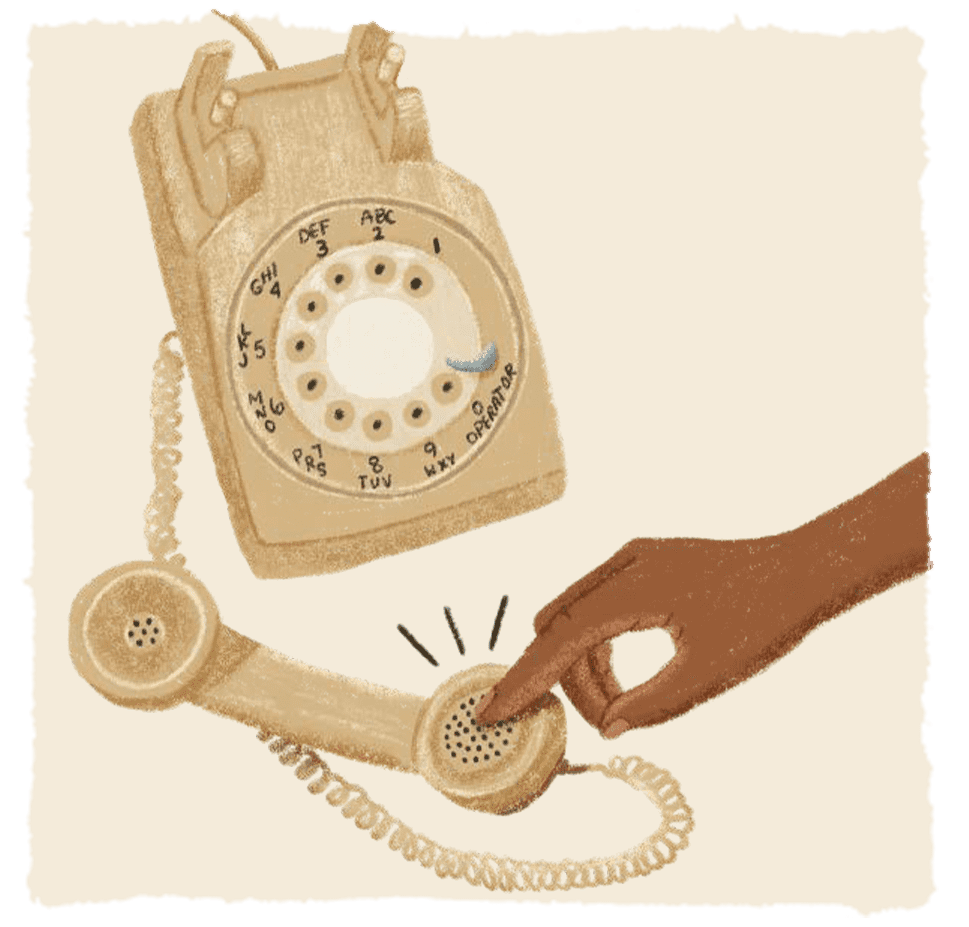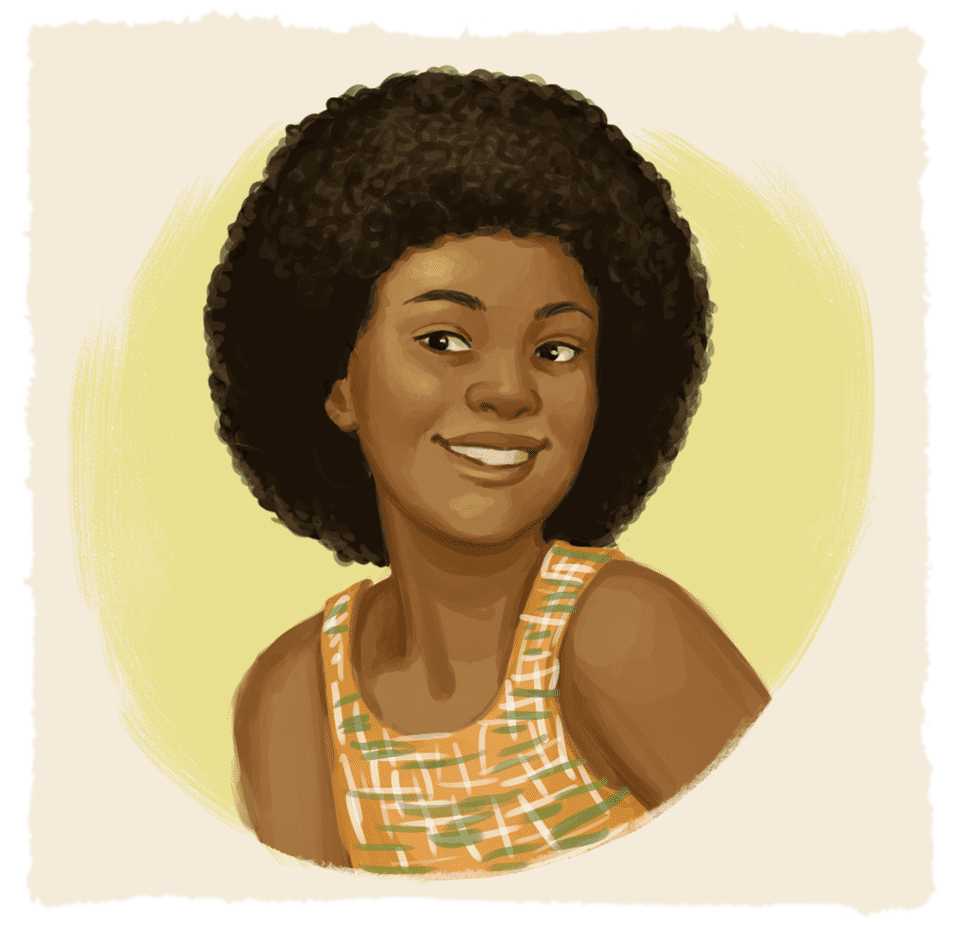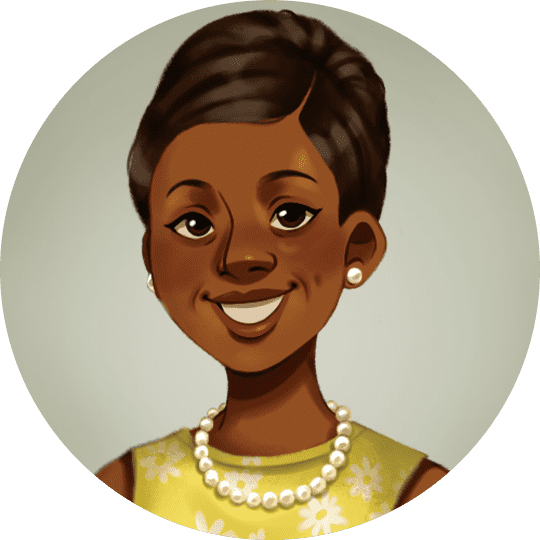
Frances Ellison
Melody’s mom is a math teacher who encourages her children to “make it work.” She proudly supports their activism and ambitions. She has a passion for poetry and literature.
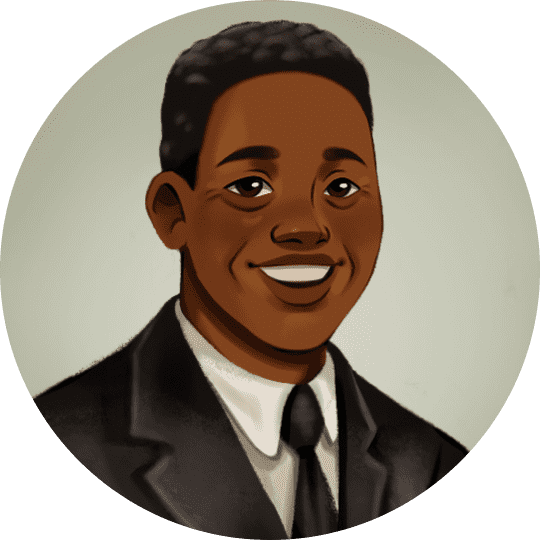
Will Ellison
Daddy, an auto worker, often works double shifts so he can afford to send his kids to college. He is originally from Alabama. He was a mechanic for the Tuskegee airmen during World War Two.
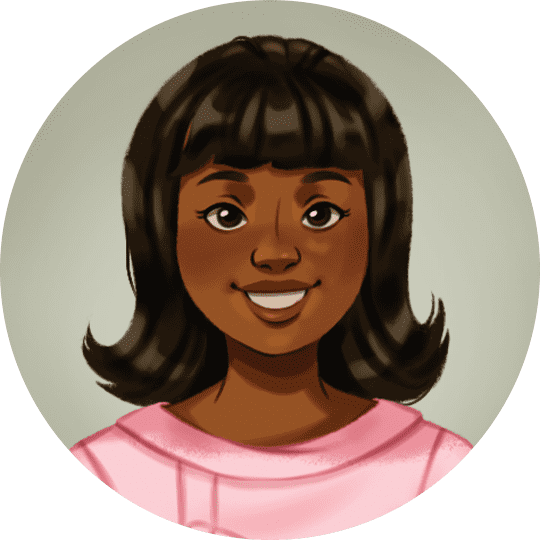
Yvonne
Yvonne is a sophomore at Tuskegee University, a historically Black college in Alabama. She is outspoken and actively involved with the civil rights movement.
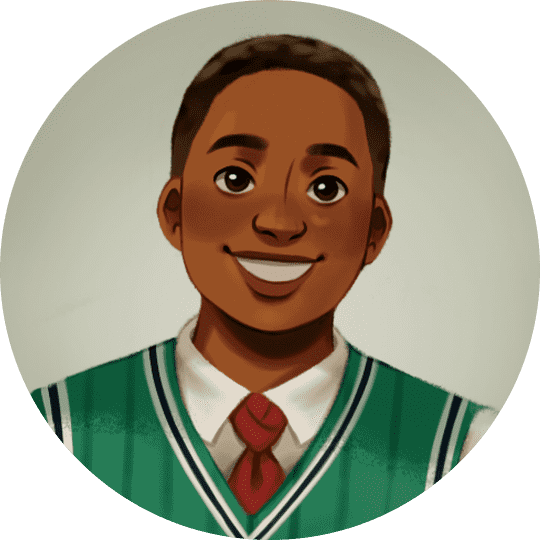
Dwayne
Melody adores her older brother, a talented musician and songwriter. Dwayne is determined to be a Motown star. He is not interested in activism, and decides to not attend Tuskegee so he can focus on music.
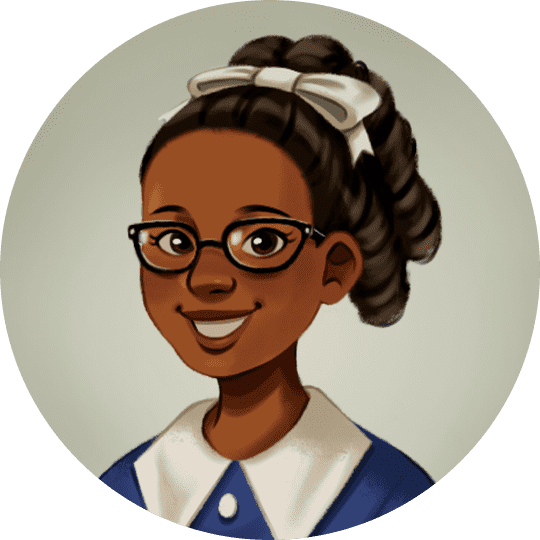
Lila
Lila sometimes acts like she knows everything in the world. She is smart, and she’s especially good at math and science. She also likes to sing and is part of the children’s choir at church.
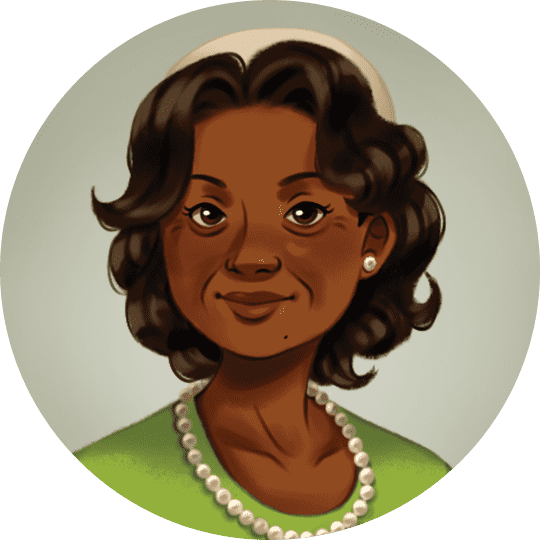
Big Momma (Geneva Porter)
Geneva Porter is Frances’s mother and a warm and loving grandmother who reminds her family that everyone has a right to shine. She’s a music teacher who gives piano and voice lessons.
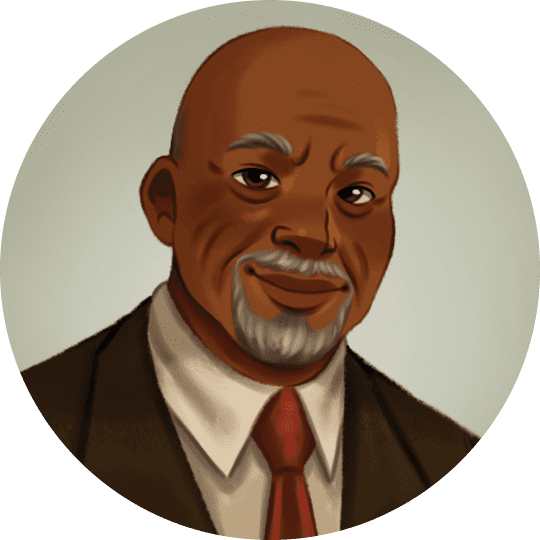
Poppa (Frank Porter)
Melody’s grandfather owns a florist shop, Frank’s Flowers. He shares his love of plants, helps Melody with her park project, and teaches her about their ancestors, reminding her that every season brings change.

Bo
The family’s lively terrier mix, named after legendary tap dancer Bill “Bojangles” Robinson. Bo inspires Melody’s mission to restore the playground and, with perfect pitch, howls along to the family’s music and singing.
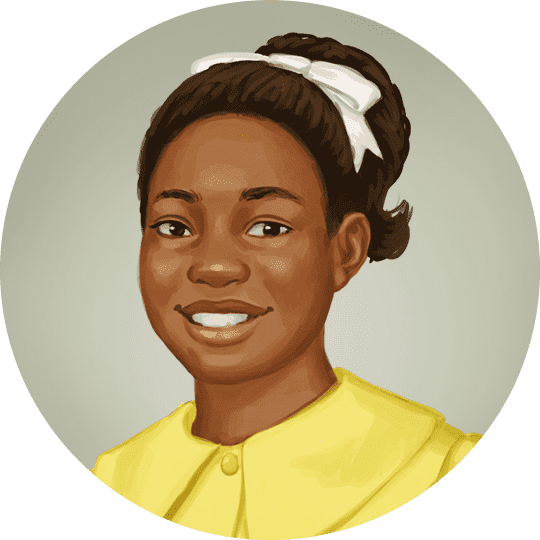
Val
Melody’s favorite cousin who moves to Detroit with her parents. She shares stories of the struggles for civil rights in Birmingham. She is used to a more segregated life and is surprised when the girls enter the public library through the main doors.
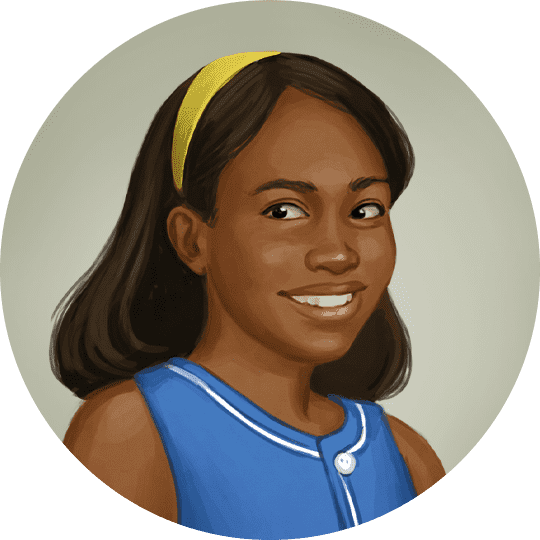
Sharon Taylor
Melody’s best friend. They sing together in the choir and wear matching hair ribbons for “Matching Monday.” With Val, Sharon gives Melody the confidence to sing and helps her revitalize the neighborhood park.
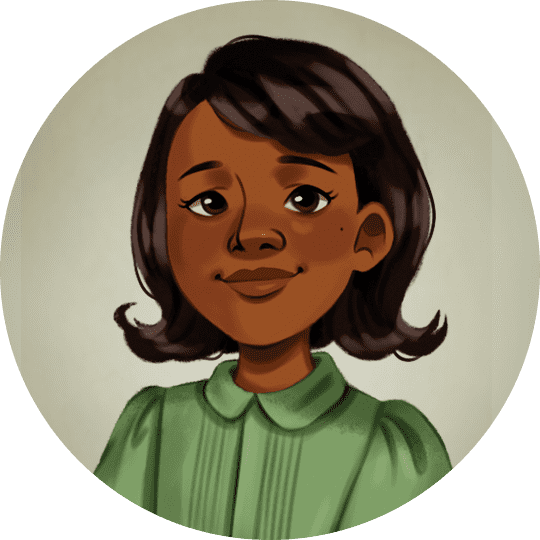
Diane Harris
A confident classmate and choir member with a beautiful voice. Melody first sees her as boastful, but after noticing Diane’s self-doubt, she realizes they have more in common than she thought, and they become friends.
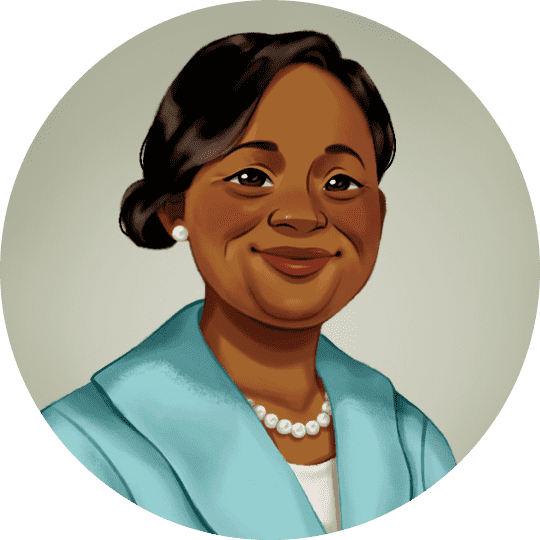
Miss Dorothy
The children’s choir director at New Hope Baptist Church and Big Momma’s best friend. She encourages teamwork and believes in Melody, choosing her for the Youth Day solo.
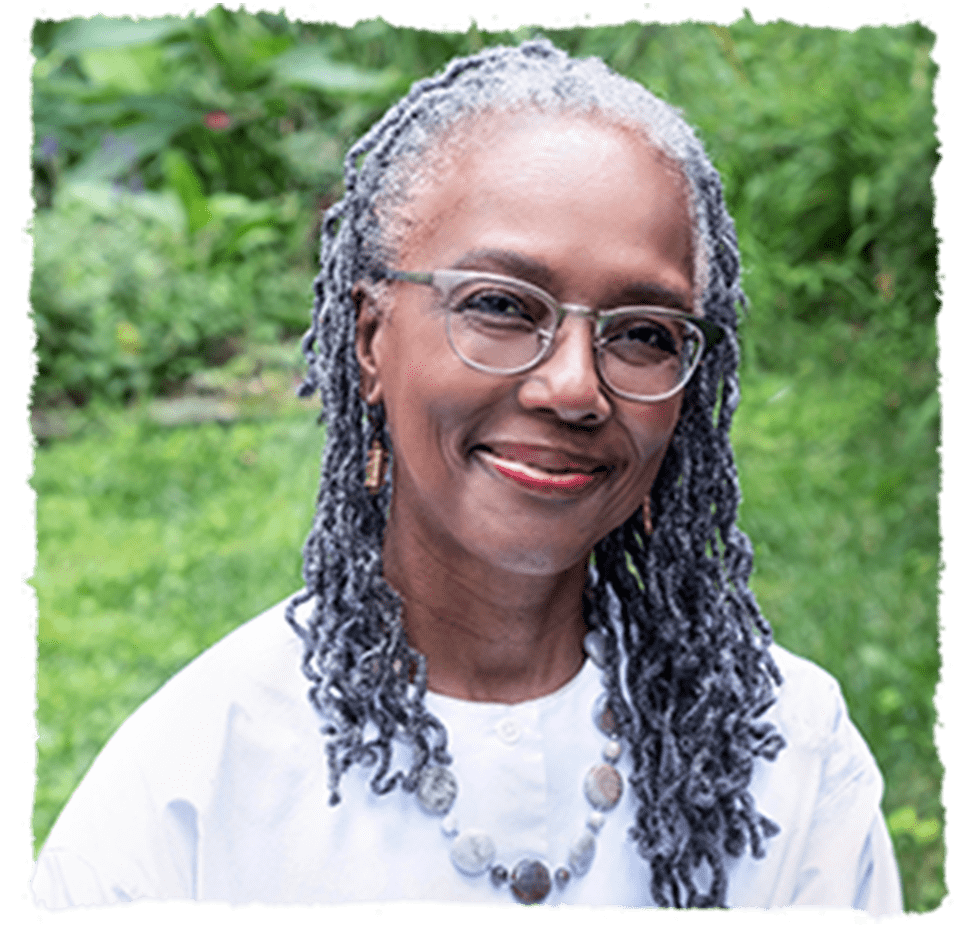
Author Denise Lewis Patrick
Denise Lewis Patrick grew up in Natchitoches, Louisiana. Lots of relatives lived nearby, so there was always someone watching out for her and always someone to play with. She wrote and illustrated her first book when she was ten—she glued yellow cloth to cardboard for the cover and sewed the pages together on her mom’s sewing machine. Today, Denise lives in New Jersey.
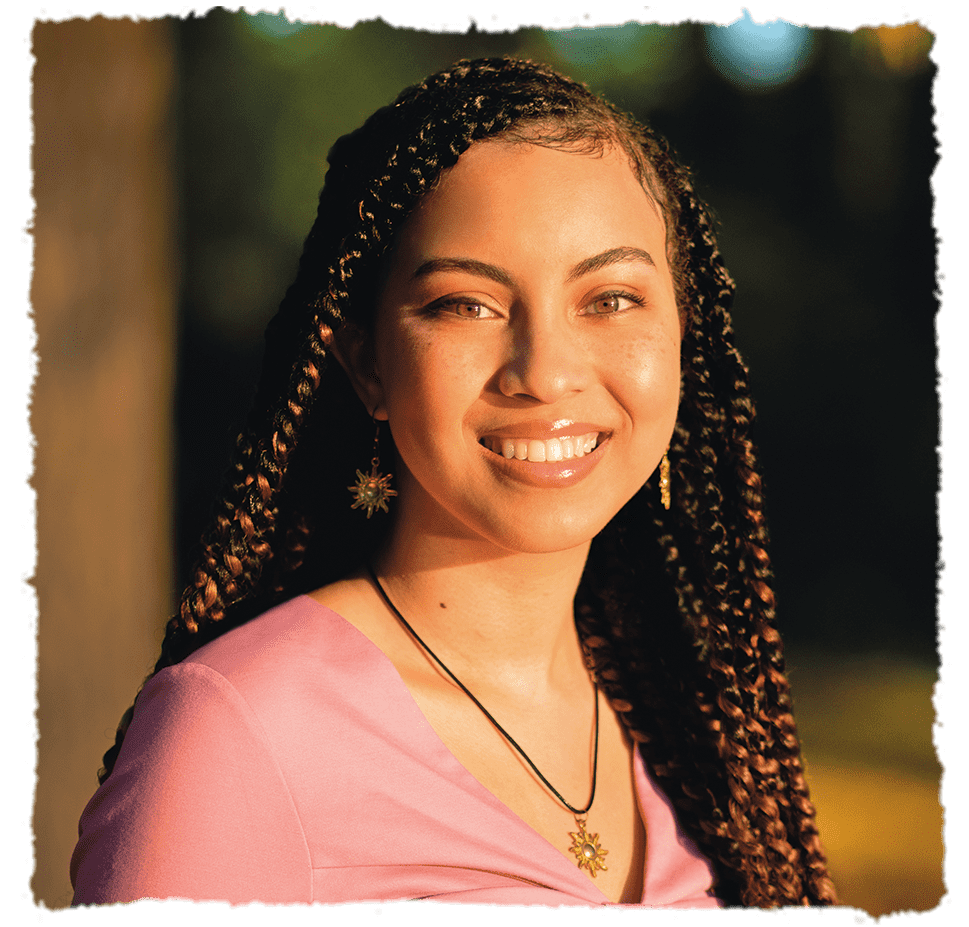
Illustrator Brittney Bond
Brittney Bond is a Jamaican-American illustrator based in Maryland. Along with her love of drawing diverse characters, she is passionate about telling impactful and inspiring stories through her illustrations using vibrant colors and expressive emotion.
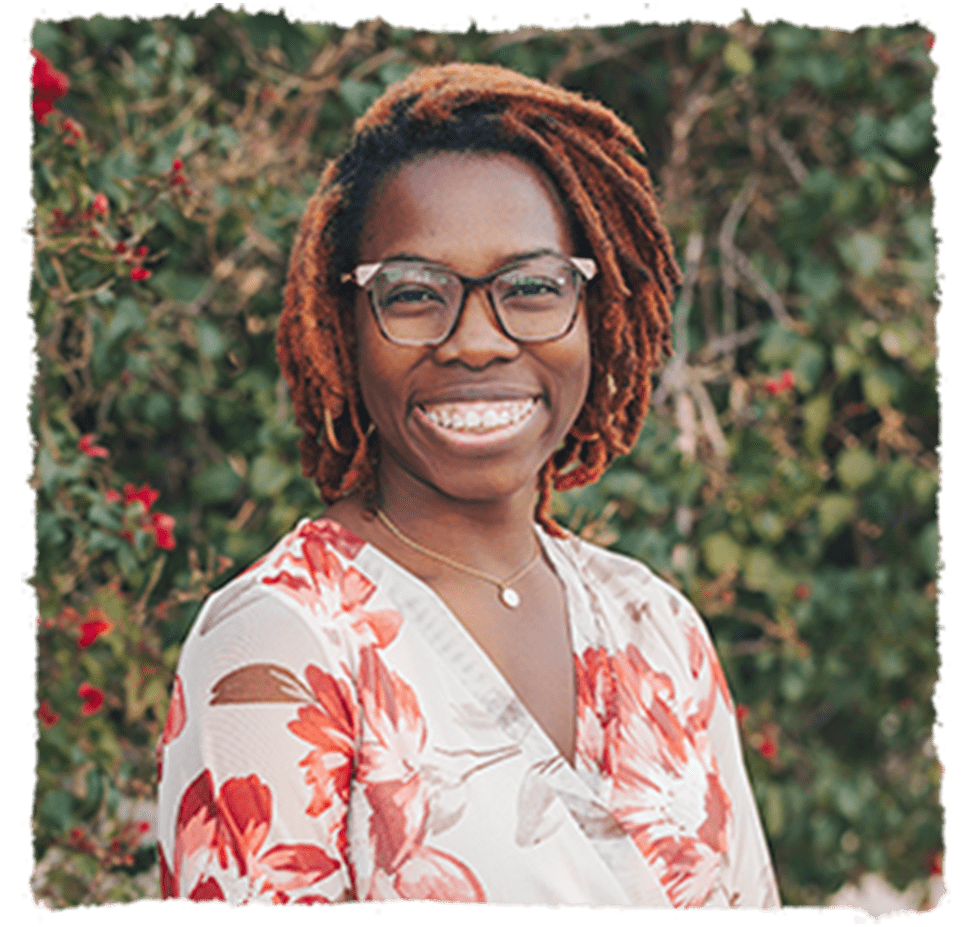
Illustrator Acamy Schleikorn
Acamy Schleikorn is an illustrator and writer based in Las Vegas. Her work fosters warmth, hope, and joy and also reflects the diverse world we live in. When she isn’t illustrating, she enjoys spending time with her family.

When Melody, Val, and Lila put on a music show, Dwayne calls them “The Even More Marvelous Marvelettes,” inspired by the popular Motown girl group The Marvelettes.

Melody’s story includes a number of significant moments of the civil rights moment, including the Walk to Freedom and Melody listening to the debut of Martin Luther King Jr.’s “I Have a Dream” speech.

After Melody and her friends transform the park, Detroit’s mayor honors their hard work by renaming it the Junior Block Club Children’s Park and Playground.

Dwayne invites Melody to sing backup on his first single, “Move On Up,” with his group The Three Ravens at Hitsville U.S.A., Motown’s famous recording studio.

When a bank refuses Yvonne a job because she’s Black, Melody boldly closes her account, declaring, “This bank discriminates against black people. I don’t want to keep my money here anymore.”

Melody’s birthday is on New Year’s Day. She turns “double digits” on January 1, 1964.

The Civil Rights Act of 1964 outlawed discrimination based on race, but many communities still faced racism and segregation.

Segregation was prevalent in Alabama, where Melody’s cousin Val is from, with separate water fountains, schools, and businesses enforcing racial inequality.

Civil rights activists and community leaders organized boycotts of stores across the U.S., refusing to spend money at businesses that discriminated against Black customers.

On September 15, 1963, the 16th Street Baptist Church bombing in Birmingham killed four Black girls and sparked national outrage, becoming a turning point in the civil rights movement.

Young women like Melody’s sister Yvonne joined the Mississippi Summer Project in 1964, a voter registration drive aimed at empowering Black Americans in the South.

The Afro became a symbol of Black power and identity. Wearing natural hair was a way for Black people to celebrate their heritage and show that all hair is beautiful.







